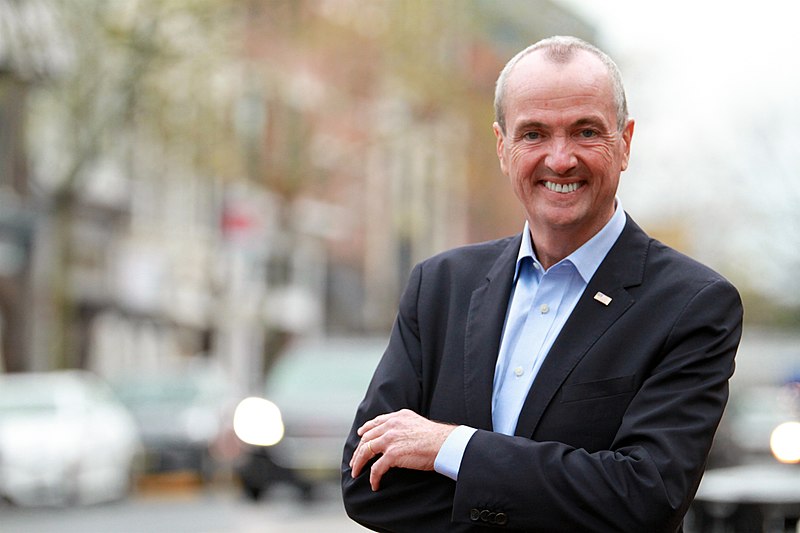By Petruce Jean-Charles | Published by Feb. 21, 2019

Some 13,000 students in New Jersey will go to college for free this spring as part of a pilot program to provide tuition-free community college.
“Today, we are putting the dream of higher education within reach of more students and more families,” said Gov. Murphy. “Making community college tuition free will help New Jersey’s young people and working adults…and it will help build the talented workforce that is the engine of our state’s economy.”
In order to build the educational system in NJ, Gov. Murphy set an investment for the Fiscal Year 2019 budget. This initiative planned to support students and the economy through testing the first year of tuition-free community college.
Moreover, Gov. Murphy implemented a $45 million budget for community college opportunity grants, $5 million for planning grants and $8.5 million in Tuition Aid Grants and the Educational Opportunity Fund expansion.
Planning grants will assist all 19 colleges by improving completion rates, while the CCOG will cover any tuition or fees that was not covered by other financial sources.
Although 19 colleges applied to participate in this pilot, only 13 were selected: Atlantic Cape Community College; Bergen Community College; Camden County College; Cumberland County College, Hudson County Community College, Mercer County Community College, Middlesex County College, Ocean County College, Passaic County Community College, Rowan College at Gloucester County, Salem Community College, Union County College and Warren County Community College.
In addition to those 13 colleges the other six colleges will receive a $250,00 grant for recruitment, financial support, student outreach and the expansion of the program come fall 2019.
“Our hope is that all 19 community colleges will benefit from the learnings during this pilot phase…Each and every college identified students within their communities who could be eligible for assistance through this program, and I hope we are able to learn from the pilot cohort,” said New Jersey’s Secretary of Higher Education, Dr. Zakiya Smith Ellis.
Among the students that attend Kean, 5462 out of 16,125 were transfer students as of fall 2018.
Kean University’s student population of community college transfers was 1098 out of 1460 in fall 2018, meaning 75.2 percent had associate degrees upon entering Kean.
With the pilot in motion, the Kean community has become aware of the benefits and issues that may arise if this pilot deems successful.
Joseph Hamilton, a senior studying Communication is a Raritan Valley Community College graduate, who said his classes there were at a higher level than Kean University.
“[Community college] is an affordable alternative to the universities that have taken the approach of big business rather than the educational service industry they are in,” said Hamilton. “[But] nothing is free, someone will indefinitely pay for free education…and since the majority of Americans satiate those salaries with taxes, it would seem that all Americans will pay for free education.”
Hamilton’s main concern was the quality of teaching that could change if this pilot were to succeed.
“[Free tuition] may lower the quality teachers that the community college receives,” said Hamilton. “Teachers on a government salary, like public school teachers, have always suffered through egregious compensation for the incredibly important jobs that they do, so if salaries suffer, then quality might suffer as well.”
Small Group Communication Professor, Malcolm Evans has also worked at community colleges, where his students have saved money and obtained degrees.
“Many of the students I teach at community colleges enroll there because it is a way to save money,” Evans said. “It will probably result in higher numbers of transfer admissions, as students look for institutions to continue their education and Kean is one of the more affordable four year colleges in the state.”
Moreover, Evans noted that the number of incoming freshman would decrease, impacting adjunct professors teaching into classes.
“I would be interested in knowing how it impacts enrollment at four year colleges,” said Evans. “[Because] this is a way of addressing the crippling student debt we have in our country.”
However, Evans then acknowledged that transfer students would have completed most general education requirements.
“An increase in transfer admissions could mean an increased focus on upper level electives and major courses instead of providing general education courses at four year colleges,” said Evans.
Director of Media Relations Margaret McCorry, noted that affordable college is important for all students in NJ.
“Kean…offers numerous financial aid options and scholarships to ensure students receive the maximum amount of support possible, whether they enroll here directly from high school or transfer from county colleges in New Jersey,” said McCorry.

You must be logged in to post a comment.